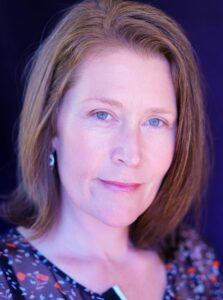President’s Medal for Science and Innovation
The President’s Medal for Science and Innovation was created to recognize individuals who have made significant contributions through STEM fields.
The award honors an individual who has gained prominence internationally in science, technology, engineering, or mathematics and who represents the liberal arts ideal of empowering humanity through the sciences.
The President’s Medal for Science and Innovation Advisory Committee, which includes prominent STEM faculty at Trinity College, leads the selection process, and ultimately recommends highly qualified candidates to the president. Recipients are not necessarily graduates of Trinity but have made lasting contributions to their field.
The 2024—2025 recipient was Kaja LeWinn ’98.
 Kaja LeWinn is professor of psychiatry and behavioral sciences at the University of California, San Francisco. She graduated Phi Beta Kappa from Trinity College with a major in behavioral neuroscience and went on to earn a doctoral degree from the Harvard School of Public Health in Social Epidemiology. She was then selected for the prestigious Robert Wood Johnson Health and Society Scholars program. In her work, she integrates perspectives from epidemiology, psychology and neuroscience to identify the modifiable physical and social exposures that matter most for child neurodevelopment and mental health. Driven by a strong conviction that all children should have the opportunity to realize their full potential, much of her work focuses on underrepresented and understudied populations. She is a leader of several regional and national epidemiological studies, including the National Institutes of Health funded ECHO Consortium, which follows over 30,000 U.S. children and their families. She has authored over 130 peer reviewed publications, and her work has been featured in the Atlantic, NPR, Fortune, and other news outlets.
Kaja LeWinn is professor of psychiatry and behavioral sciences at the University of California, San Francisco. She graduated Phi Beta Kappa from Trinity College with a major in behavioral neuroscience and went on to earn a doctoral degree from the Harvard School of Public Health in Social Epidemiology. She was then selected for the prestigious Robert Wood Johnson Health and Society Scholars program. In her work, she integrates perspectives from epidemiology, psychology and neuroscience to identify the modifiable physical and social exposures that matter most for child neurodevelopment and mental health. Driven by a strong conviction that all children should have the opportunity to realize their full potential, much of her work focuses on underrepresented and understudied populations. She is a leader of several regional and national epidemiological studies, including the National Institutes of Health funded ECHO Consortium, which follows over 30,000 U.S. children and their families. She has authored over 130 peer reviewed publications, and her work has been featured in the Atlantic, NPR, Fortune, and other news outlets.
